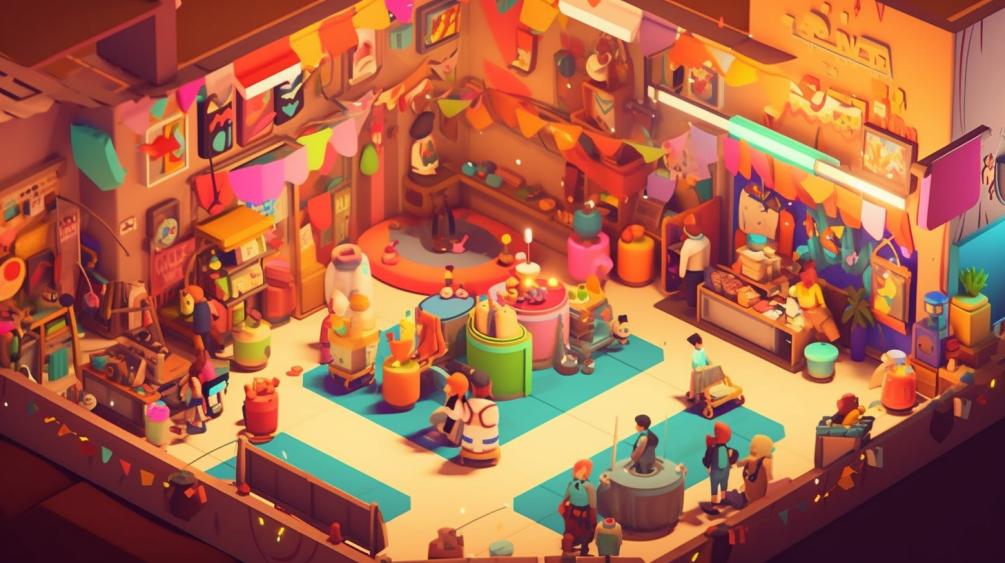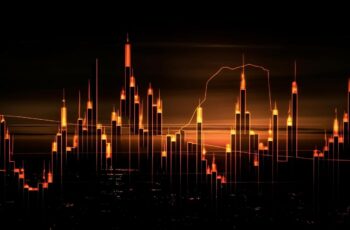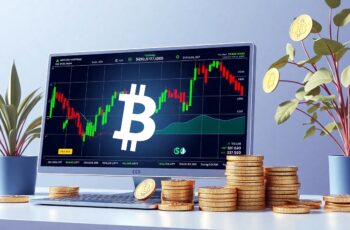The gaming universe has been experiencing a significant transformation, with non-fungible tokens (NFTs) revolutionizing the industry. These blockchain-based digital assets are altering the landscape, ushering in a new era of virtual economies and redefining gamers’ experiences. Let’s delve into the impact of NFTs on gaming, their broader economic implications, and the future of digital asset ownership.
Riding the NFT Wave: The Evolution of the Gaming Landscape
NFTs have carved out an essential niche within the gaming sector, thanks to their unique characteristics. Unlike typical cryptocurrencies such as Bitcoin, NFTs are unique and indivisible, making them ideal for representing in-game elements like characters, items, or entire virtual worlds. You can dive deeper into the intricacies of NFTs in this World Economic Forum’s comprehensive report [1].
[1] World Economic Forum. (2022). “Understanding Non-Fungible Tokens (NFTs)”
The NFT-based gaming market is booming. Data from DappRadar reveals that NFTs in gaming raked in over $2.3 billion in sales in Q1 2022 alone. Industry heavyweights like Ubisoft and Electronic Arts haven’t been left behind, launching their own NFT-centric games and platforms.
Virtual Economies: The Game-Changing Impact of NFTs
The most profound effect of NFTs in the gaming realm has been the democratization of digital asset ownership. In conventional gaming, players might invest considerable time and resources in amassing in-game assets or crafting unique characters, yet without true ownership. NFTs have flipped this script, enabling gamers to genuinely own, trade, and even profit from their in-game assets. You can learn more about the economics of virtual worlds in this article from the National Bureau of Economic Research.
Virtual real estate, in particular, has seen a tremendous impact from NFTs. Platforms like Decentraland and The Sandbox allow users to buy, develop, and even rent virtual land, creating personalized experiences for other users. These virtual properties are secured through NFTs, with The Sandbox’s plot of virtual land selling for a staggering $2.4 million in February 2022, according to a CNBC report.
NFT Gaming: Looking Into the Future
NFT gaming has also brought forth the ‘play-to-earn’ model, allowing players to earn real-world value from their in-game activities. Axie Infinity, developed by Sky Mavis, is a shining example of this model, where players can earn tokens through battles and selling virtual creatures, attracting millions of players globally. CoinDesk’s report provides more insight into the play-to-earn movement.
Nonetheless, NFT gaming is not without its challenges. The environmental footprint of blockchain technology, particularly proof-of-work blockchains like Ethereum, has raised sustainability concerns. The shift to more energy-efficient models, such as Ethereum’s transition to proof-of-stake with Ethereum 2.0, could help alleviate these concerns. Scientific American delves into the environmental impact of blockchain in this insightful article.
Legal and regulatory hurdles also loom as NFT gaming garners increased attention. Concerns about digital asset ownership, taxation, money laundering, and fraud are among the key areas regulators are keen to address. Global governments and regulatory bodies are gradually laying down frameworks to govern this fast-evolving space. You can learn more about the regulatory landscape in this report from the Brookings Institution [2].
[2] Brookings Institution. (2023). “Regulating NFTs: Challenges and Opportunities”
Conclusion: Gaming Reimagined Through NFTs
The fusion of NFTs and gaming has shifted paradigms, opened up innovative business models like play-to-earn, and offered gamers true ownership of digital assets. While challenges such as environmental impacts and regulatory concerns persist, the ongoing evolution and expansion of NFT gaming point to a promising future for both the gaming industry and the wider digital asset ownership world.
FAQs
What’s the deal with virtual worlds in NFT games?
Yo! Virtual worlds are basically digital landscapes or realms in games where you can own, trade, or monetize unique in-game items as NFTs. Think of it as Decentraland meets Fortnite.
How does NFT work in these virtual worlds?
NFTs, or non-fungible tokens, are unique digital assets verified on the blockchain. In these worlds, NFTs can be land parcels, avatars, or even rare spells. You hodl it, you own it!
Why should I care about NFT in gaming?
Bro, it’s a game-changer! Owning an NFT means real-world ownership of digital assets. You can trade, sell, or flex them in the metaverse, creating some serious passive income.
Are these games just another crypto pump-and-dump?
Nah! While some projects can be shady, many have legit value and utility. Do your own research (DYOR) and don’t FOMO into the first pixelated sword you see.
How do I start trading NFTs in these games?
First, snag yourself a digital wallet, like MetaMask. Then, hit up marketplaces like OpenSea or Rarible, where you can start your trading spree. Remember, always DYOR!
I’ve heard of gas fees. What’s the fuss?
Ah, those pesky gas fees! They’re the costs you pay for Ethereum transactions. When trading NFTs, these fees can sometimes skyrocket, so always keep some ETH on hand and be wary of gas wars.
How do I protect my NFT assets?
Security first, mate! Use hardware wallets, ensure 2FA is active, and never share your private keys. Also, beware of rug pulls in the NFT space.
Can I build in these virtual worlds?
Totally! Some realms allow you to construct buildings or even create entire landscapes using your NFTs. It’s like becoming a digital real estate mogul!
What’s the potential ROI on NFT gaming?
The ROI varies, my friend. Some early adopters have made mad gains, but it’s a volatile space. Remember the golden rule: never invest more than you’re willing to lose.
Are all virtual world NFTs built on Ethereum?
Nope! While Ethereum’s the OG, there’s a rise in other blockchains like Binance Smart Chain, Flow, and Polkadot. They’re diversifying the game.
What’s the next big thing in NFT gaming?
Keep an ear to the ground for “play-to-earn” models. Gamers can actually earn crypto by playing. Talk about leveling up in the real world!
Any advice for an NFT gaming newbie?
Jump in, but with caution. Surround yourself with a solid community, stay updated on trends, and always, always DYOR. Happy gaming!




